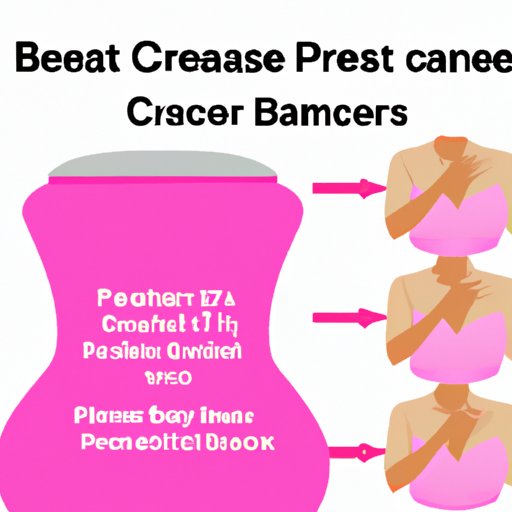Introduction
For many women, experiencing heavier breasts is a common occurrence, and it can be uncomfortable and distressing. As such, it’s essential to understand what causes the heaviness, how to alleviate it, and when to seek medical attention. This article aims to provide useful insights into why women experience heavier breasts, how to maintain breast health, debunk myths, and offer resources for readers.
Possible Causes of Heavier Breasts
Section 1: Medical Conditions
Several medical conditions could cause the breasts to feel heavier. Some of these conditions include
PMS (premenstrual syndrome)
Many women experience breast soreness and swelling during PMS. Hormonal changes cause the breasts to retain water and gain weight, leading to heaviness and discomfort.
Pregnancy
During pregnancy, the breasts undergo significant changes as they prepare for milk production. Hormones cause the breasts to increase in size and weight as the milk ducts and glandular tissue grow, resulting in discomfort.
Cysts
Cysts are fluid-filled sacs that can develop in the breast tissue. These sacs can cause the breasts’ heaviness and soreness and may require a biopsy or aspiration to determine the best course of treatment.
Fibroadenomas
Fibroadenomas are noncancerous lumps that can cause discomfort and heaviness in the breasts. Women aged 20-40 are at a higher risk of developing this condition.
Mastitis
Mastitis is a common infection that affects breast tissue, causing inflammation, redness, and pain. The breasts may feel heavier and tender, and the skin may become warm to the touch.
Hormonal Imbalances
Hormonal imbalances can cause changes in breast size, weight, and texture. These imbalances can occur during puberty, menopause, or while taking certain medications.
Breast Cancer
While rare, breast cancer can also cause the breasts to feel heavier. As a result, it’s crucial to monitor and examine the breasts regularly and seek medical attention if any changes occur.
It’s advisable to seek medical attention if the heaviness is accompanied by significant pain, changes in the breast’s skin, or a lump. Depending on the condition, the doctor may recommend treatments or self-care options.
Section 2: Aging and Weight Gain
Over time, weight fluctuations, aging, and lifestyle changes can impact breast size and weight.
Changes in weight can cause the breast tissue to expand or contract, leading to stretch marks or discomfort. Similarly, age-related changes, such as decreased estrogen levels, can cause the breast tissue to lose its elasticity, leading to sagging and heaviness.
To maintain optimal breast health, it’s essential to engage in regular exercise, wear well-fitting bras, and keep the skin healthy through moisturizing and gentle cleansing.
Section 3: Mental and Emotional Stress
Stress and anxiety can cause physical symptoms such as soreness and heaviness in the breasts. Relaxation techniques such as yoga, meditation, or therapy can help alleviate the symptoms.
Section 4: Nutrition and Lifestyle Habits
Diet and lifestyle habits can affect overall wellness, including breast health. Eating a balanced diet, avoiding smoking and excessive alcohol consumption, and staying hydrated can promote breast health and reduce inflammation and discomfort.
Breast Cancer Awareness
Breast cancer is a severe health concern, and it’s essential to be aware of the symptoms. Regular breast self-exams and screening tests, such as mammograms, can detect breast cancer early and improve the chances of successful treatment. It’s important to seek medical attention if a lump is felt or there is any change in breast texture.
Myths and Facts about Breast Health
There are many misconceptions about breast health, and it’s essential to debunk them to promote accurate information. For instance, wearing bras does not cause breast cancer, and certain medications do not result in breast enlargement. It’s important to distinguish between myths and facts and seek medical advice when in doubt.
Breast Enhancement Options
Some women may consider breast enhancement options such as natural remedies or surgical options. However, it’s important to weigh the pros and cons of each option carefully. Surgical options, such as breast augmentation, pose risks such as implant leakage and infection. Natural remedies such as exercises or supplements may not provide guaranteed results. It’s essential to research and consult with a medical professional before choosing any option.
Conclusion
Experiencing heavier breasts is a common occurrence for many women, but it can be alleviated by understanding the cause. Maintaining breast health through regular exercise, a balanced diet, and healthy habits is crucial to reducing discomfort. Breast cancer awareness is also essential to detect the disease early and improve the chances of successful treatment. Remember to seek medical advice when in doubt and implement healthy habits in daily life.
